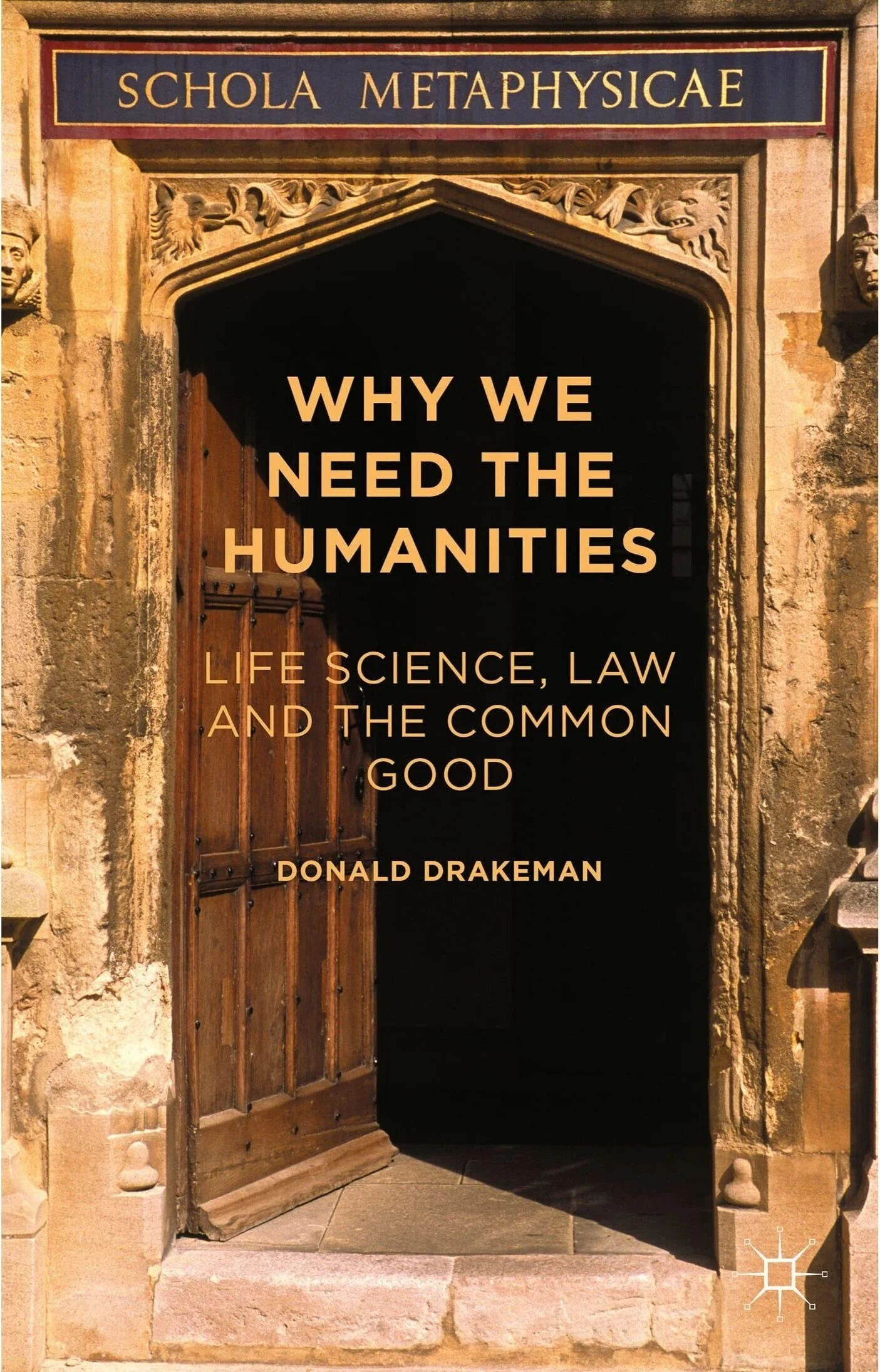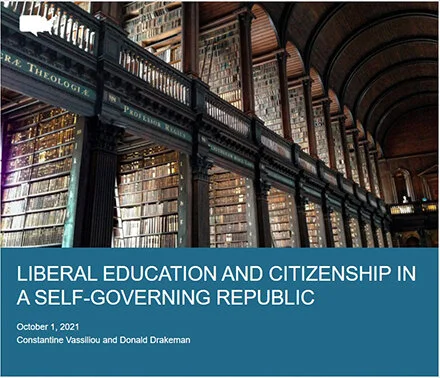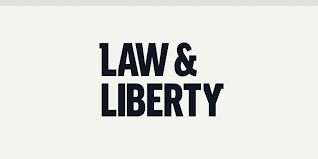Why We Need the Humanities
Viewing academia through a real world lens, and vice versa, has enabled me to see just how often the humanities have played an important, but not entirely visible, role in business, government, law and even science. I set out to shine additional light on some of those connections in the book, Why We Need the Humanities: Life Science, Law and the Common Good (Palgrave, 2016).
Book
Why We Need the Humanities: Life Science, Law, and the Common Good, Palgrave, 2016.
This lively book explains why we all need the humanities. It shows how society has relied on humanities scholarship to address important public policy issues for many years. Donald Drakeman, an entrepreneur and educator, builds a compelling case for the practical importance of the humanities in helping governments make decisions about controversial issues affecting our lives in fields as diverse as healthcare and civil liberties. Judges regularly invoke the work of humanities scholars in deciding complex constitutional issues. Even the much-anticipated economic growth expected from progress in the biomedical sciences will ultimately depend on health policy decisions shaped by humanities scholarship. Society needs the humanities, and should support the continuing creation of scholarly research. At the same time, humanities scholars seeking society's support need to consider more thoughtfully how they can best contribute to the common good.
Bold, compelling, and accessibly written, Why We Need the Humanities sets out a fascinating case for the importance of humanities scholarship and research in the modern world.
“Our society's decades-long neglect of humanistic learning has weakened American intellectual life and contributed to the coarsening of our culture. Drakeman's powerful plea in support of the humanities is, therefore, a much needed clarion call. What is more, he charts the path for those who are willing to take up the cause of their revitalization.” - Robert P. George, McCormick Professor of Jurisprudence, Princeton University, USA
Articles
Liberal Education and Citizenship in a Self-Governing Republic, Constantine Vassilliou and Donald Drakeman, Starting Points Journal, October 1, 2021.
The following is a conversation with Donald Drakeman about his recently published article, “Business Needs Humanities to Succeed,” and upcoming book chapter (both co-authored with Kendall Hack), which argue for the inclusion of humanities learning in America’s business schools.
“Prioritizing the humanities will not only help business students be more thoughtful citizens—certainly the best reason for studying them. It will make them more successful in business.” – Drakeman & Hack, Law and Liberty
“Business schools such as the Wharton School were originally founded [over a century ago] to foster character development and good citizenship by offering a liberal arts education to future corporate leaders. Courses in government, history, and moral and political philosophy play a major role in the curriculum, alongside offerings in finance, economics, and accounting.” – Drakeman & Hack, in Liberal Education and Citizenship in a Self-Governing Republic, Forthcoming Fall 2022
Some Second Thoughts About the Humanities, Donald Drakeman, Zygon Journal of Religion and Science, Volume 56.1, June, 2021.
Willem Drees’ excellent What Are the Humanities For? triggered a series of second thoughts about the role of the humanities in modern society. These include several topics on which he and I agree but where we may be out of step with current trends, such as a dedication to “value-free” scholarship and the continuing importance of the academic study of religion. It also provided an opportunity to question why religion has been excluded from policy debates involving the principal interface between science and religion in the twenty-first century: the creation of new medicines and their delivery to the billions of religious people around the world. Finally, I question the assumption that studying the humanities necessarily promotes critical thinking and argue that achieving that goal is more important now than ever before.
Business Needs the Humanities to Succeed, Donald L. Drakeman and Kendall Hack, Law and Liberty, May 25, 2020.
What is the second-best reason for studying the humanities in business school? We hope you already know the best reason: to understand what it means to be human, how to live a good life, how to be an informed and thoughtful citizen, and so on. These are the questions that we begin to grapple with in our formative years, and then return to in our contemplative ones decades later. In the roughly two score years in between, we hope MBAs will continue to do so. During that time of life, however, business school graduates tend to think mostly of … business. Our goal here is to demonstrate why the humanities can also help them be more successful in business.





